STATEHOUSE REPORT | ISSUE 22.24 | June 16, 2023
BIG STORY: Port pauses major Union Pier project in Charleston
NEWS BRIEFS: General Assembly adjourns after passing budget, bond reform
LOWCOUNTRY, Ariail: Ribbit
COMMENTARY, Brack: No real tax reform again by General Assembly
SPOTLIGHT: S.C. Hospital Association
ANOTHER VIEW: Keep your eye on the rule of law during Trump drama
MYSTERY PHOTO: Water bottles
FEEDBACK: Send us your thoughts
In surprise, port pauses major Union Pier project in Charleston
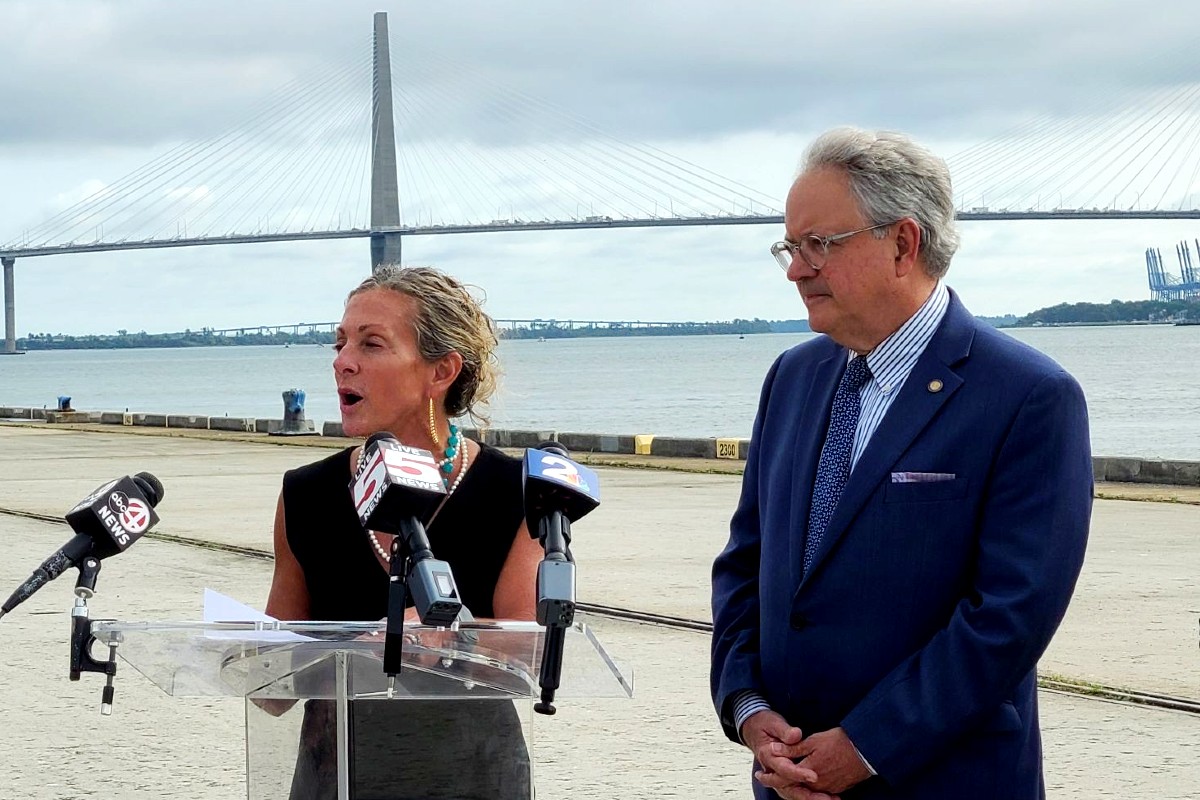
By Skyler Baldwin | The controversial Union Pier development project in Charleston is on pause for the next year, S.C. State Ports Authority (SPA) President and CEO Barbara Melvin announced today. In addition, the plan will now be led by the city of Charleston and prioritize more community input, she said.
The state agency’s decision, which followed a late Thursday announcement of a 9 a.m. press conference, is the result of months of pushing by the agency and a corresponding onslaught of negative public feedback on the project’s direction.
“For the past year, we have engaged extensively with the community,” Melvin said. “We heard from hundreds of residents. We consistently met with city leaders, stakeholders, neighborhood groups and residents. People shared with us what they wanted to see at Union Pier, and more importantly, what they did not want to see at Union Pier.”
Critics have complained that the project was too big, too fast and too out-of-scale for historic Charleston and neighborhoods that feature two- to three-story residential units, not blocks of eight-story chunks of commercial buildings.
“The same themes kept emerging,” Melvin continued. “We heard the calls to slow down the process and gather even more community input. We heard the need for this process to be city-led with third-party experts weighing in on every aspect of the proposal. We heard the desire for less density and height and more green space. We heard that future development must address resiliency concerns, traffic demands and affordable housing.”
Earlier this week, S.C. Rep. Wendell Gilliard, D-Charleston, wrote a letter to Melvin urging her to pause and reset the redevelopment of the pier, citing concerns over the lack of communication and transparency during the planning process.
Key intentions remain the same
Melvin said the core elements of the plan are projected to remain the same: a mixed-use neighborhood development that expands waterfront access, creates public parks and greenspace and connects residents with cultural assets like the nearby International African American Museum.
But now, there is an intentional effort to be more inclusive.
“We have a forever opportunity to prove public access to one of the most beautiful places in America right here,” said Charleston Mayor John Tecklenburg.
Preservation Society of Charleston President and CEO Brian Turner said the pause is an opportunity not to scrap the project entirely, but to build on the good ideas that have been brought to the table already.
“I think we build on the good ideas,” he said. “I think that’s the right thing to do — that’s the community minded thing to do. We never came out and said we need to go completely back to the drawing board. What’s been brought to the table — there were a lot of good components on that, and we need to build on those components.”
Winslow Hastie, the president and CEO of the Historic Charleston Foundation (HCF) that has been working to reframe the project, said the slowdown has great merits for Charleston.
“This pause and change in planning direction is a tremendous opportunity for the people of Charleston for this once in a lifetime opportunity to transform Union Pier, and to make it Charleston,” he told the Charleston City Paper. “It will allow a truly collaborative and community-led planning process.
“We are appreciative of the SPA for hearing Charleston’s voices, which were numerous and well informed. This is also a testament to the power of community-led advocacy and the strong collaboration between HCF, Preservation Society of Charleston and the Coastal Conservation League, and others.”
Big changes coming nonetheless
While the core elements of the project may be holding fast, public leaders have voiced several concerns with the previous proposal and its direction.

“The major community concerns have really been around height, density and public realm components like open space and the assurances the community has that this will be for them, and not just a resort for other people,” Turner said. “In this community-led process, we’re going to be able to bring those values to the table and put them in place. The city will have tools to benchmark the next rezoning application again … that’s exactly what we asked for.”
Tecklenburg said he could envision six main tracks for the project’s new direction:
- Update the comprehensive city plan to define what the future planning area will look like;
- Address resiliency elements of the project site to not only manage stormwater, but protect residents from potential storm surge and rising sea levels;
- Set the architectural tone to ensure the development looks and feels like Charleston;
- Solidify plans for public parks and greenspace, including what features the public would like to see;
- Determine avenues for financing the development, including options for a tax increment finance district;
- Ensure traffic and transportation remains equitable, accessible and does not have a negative impact on the rest of the city.
Turner said the Union Pier project represented a tipping point for the Charleston community.
“The stuff people see going on — people are asking questions,” he said. “There’s no other opportunity like this in terms of acreage in the heart of the town people know. People need certainty that this isn’t just going to be a massive scar on the city.”
Turner added that this is not only a step forward in sending a message to the community that local advocacy groups have been effective, but it also serves as a note to other developers “who want to capitalize on what we’ve built in this city.”
A year-long reevaluation
Tecklenburg said he will be meeting with a coalition of local advocacy groups — the Preservation Society of Charleston, the Coastal Conservation League, and HCF — on Friday to begin outlining a new path forward.
“Today is, in a way, a day of celebration,” he said. “But to get it right, we have to go to work.”
The Joseph P. Riley Jr. Center for Livable Communities will also be engaged to guide and vet plans, and the National Trust for Historic Preservation will be engaged in the process as well, acting as third-party consultants throughout the process.
Several other local groups have also pulled up a seat at the table, including the Charleston Metro Chamber of Commerce, the Charleston Trident Association of Realtors and Explore Charleston.
“We are so fortunate to live in a place where people care so much about their city,” Melvin said. “We, too, care deeply about what happens here. We believe that we will have a new plan that all can embrace.”
More details regarding the future plans and proposals of the project will come as talks commence, Tecklenburg said.
Charleston City Council member Shahid will host his monthly constituent meeting Saturday morning, where he plans to bring representatives of organizations for and against the current proposal to speak. The public meeting is set for 10 a.m. June 17 at Founders Hall at Charles Towne Landing in West Ashley.
- Skyler Baldwin is a reporter with the Charleston City Paper. Have a comment? Send to: feedback@statehousereport.com.
mber and mayoral candidate Pe
General Assembly adjourns after passing budget, bond reform
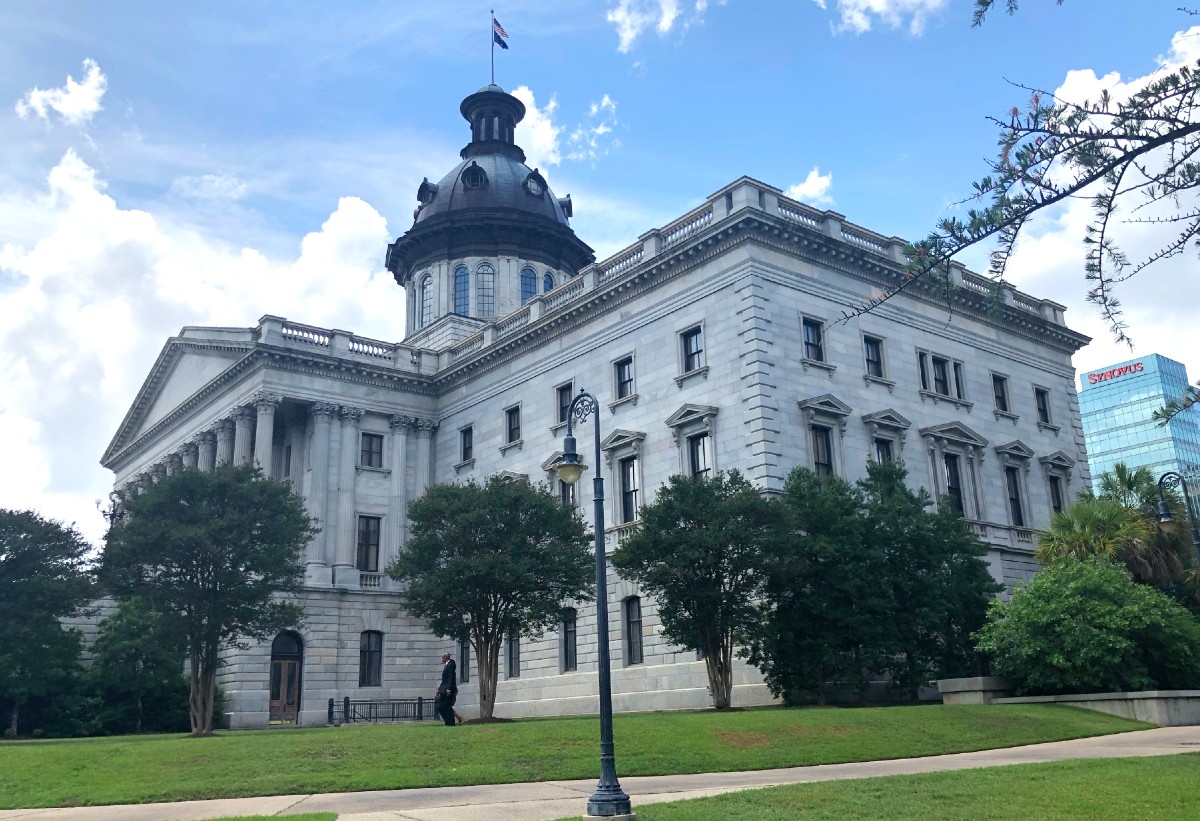
This year’s S.C. General Assembly officially ended this week following enactment of a number of GOP-favored priorities, including a new six-week abortion ban, reform of the state’s bail bond system, a new law to combat the fentanyl epidemic and a measure to streamline the state’s public health agency.
Lawmakers also approved a nearly $14 million state budget, a record amount for South Carolina. It calls for the state’s public employees tol get at least a $2,500 pay boost starting next month. Teachers from kindergarten to 12th grade also will receive a $2,500 pay bump, though it may vary by district. Legislators passed the budget Wednesday. It heads to the governor for his signature.
In other recent headlines:
2024: Trump pleads not guilty as 2024 candidates wrestle with messaging. Former President Donald Trump, now twice indicted since leaving the White House, surrendered and pleaded not guilty Tuesday to 37 federal charges in Miami. His lawyers have asked for a jury trial. Former S.C. Gov. Nikki Haley first said she would consider pardoning Trump, but later changed her messaging to criticize him for being reckless. Next week, Haley and U.S. Sen. Tim Scott, another Republican presidential candidate from South Carolina, will hold town halls in the state. Trump says he’ll spend July 4 in the Upstate.
Bond restrictions for repeat criminals passed by S.C. legislature. Criminal defendants with repeat violent charges could have a harder time getting out of jail as they await trial and could spend more time in prison if they are convicted of the crime while out on bond, according to a new proposal heading to the governor’s desk.
IAAM announces public watch event at Marion Square. The International African American Museum is set to open its doors to the public on June 27. To kick off the opening, the museum will host a simulcast of the dedication ceremony, viewable on screens mounted in Marion Square June 24 at 10 a.m.
How the Myrtle Beach area could become a global internet hub. Subsea cables, garden hose-sized fiber optic lines that run along the ocean floor, will soon connect the Grand Strand to the globe with a station in Myrtle Beach.
- Have a comment? Send to: feedback@charlestoncitypaper.com
Ribbit
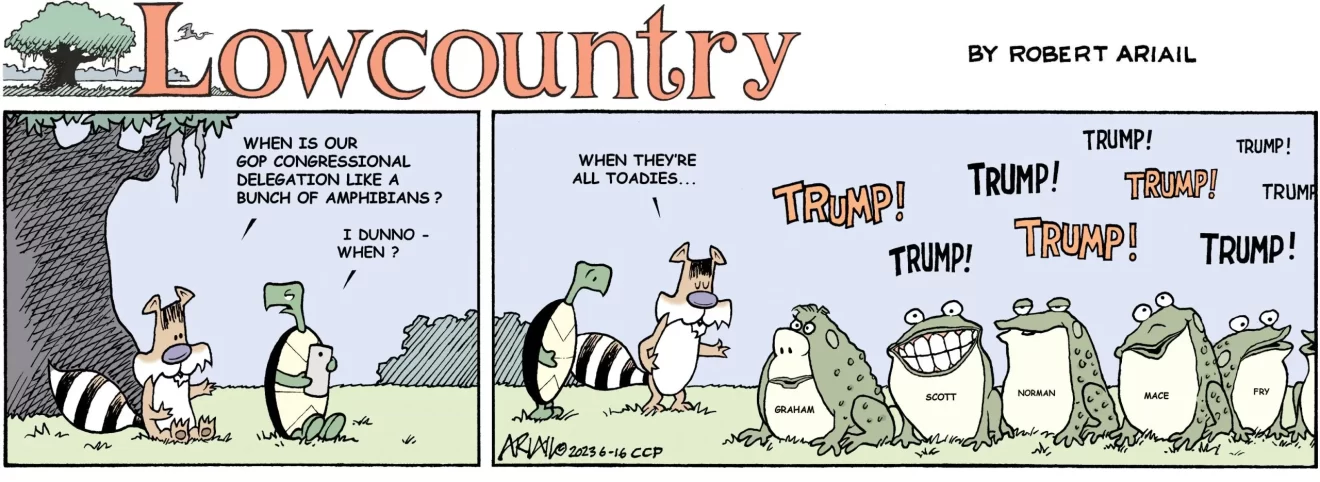
Cartoonist Robert Ariail always has interesting takes on issues, such as this week’s criminal indictment of former President Donald Trump. Love the cartoon? Hate it? What do you think: feedback@statehousereport.com.
No real tax reform again by General Assembly
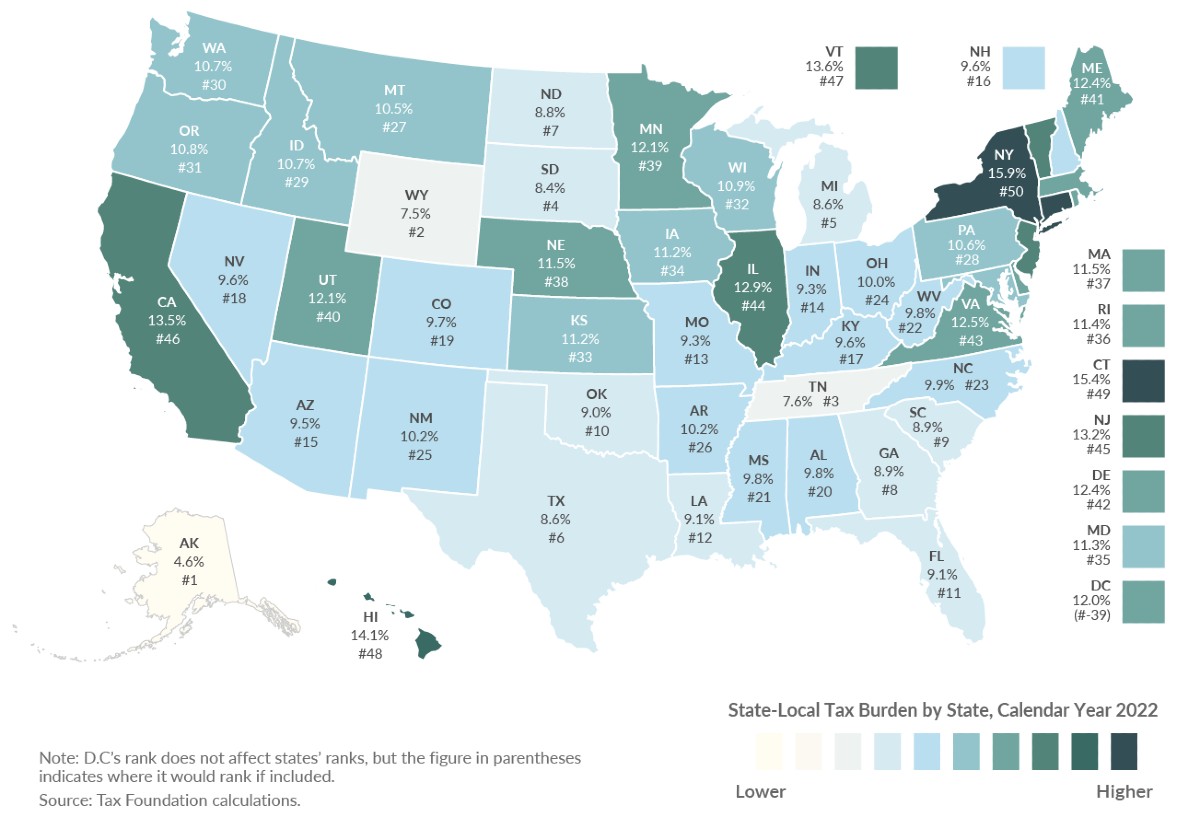
By Andy Brack | The S.C. General Assembly failed again in 2023 to enact real tax reform to make the funding of state government fairer and more equitable.
It’s a shame. They’ve only had decades to do it. Years back, before Gov. Mark Sanford hopped around on the Appalachian Trail, he pushed for comprehensive tax reform to balance the tax code, but all that happened was a big, thick report that still sits on a shelf somewhere. Other efforts also have failed.
It was also on Sanford’s watch that the legislature got hoodwinked into passing Act 388 in the name of property tax relief for homeowners. But it ended up exacerbating problems with the tax code by shoving the burden of school funding into the regressive sales tax and away from residential property owners. Guess who suffered? Renters, commercial property owners and lower- and middle-class residents, who pay a higher percentage of their income in sales taxes than others.
So even though what we pay in taxes is the biggest thing legislators deal with year in, year out, they continue to ignore inequities and regressivity in the state tax code. Translated, that means you’re likely paying way more than you should when you consider your total tax burden. Who’s not getting shafted? Yep, the rich folk.
Here’s the skinny on South Carolina’s tax structure:
Sales tax. The state has a 6% sales tax rate, but local governments can impose up to 3% more—meaning that you generally pay about 9% in sales taxes. The average in South Carolina is 7.43%, according to the Tax Foundation. Note: South Carolina also offers dozens of sales tax exemptions through its tax code, which means the state doesn’t generate more than $2 billion in revenue every year because it says businesses and individuals don’t have to pay sales taxes on exempted goods and services. Doling out exemptions is very political.
Income tax. About half of South Carolinians pay no income tax, due to their earnings. The top rate is 6.5%, but that’s been dropping slightly in recent years as legislators nibbled the income tax rate down. Interestingly, income tax tends to be progressive – meaning that it impacts richer folks more than those who are poorer. This has tended to offset the burden of sales taxes on those with less money. But by lowering income taxes, the Republican-controlled legislature is really doing little more than shifting the overall tax burden again—away from those with more money.
Property taxes. These are set by local governments. But remember, the old residential property taxes on schools were replaced with the burden-shifting sales tax through Act 388.
User fees. About a quarter of the state’s revenues comes in various licenses, tickets, user fees and more. This pool of money has been increasing over the years.
When you blend local and state taxes to try to figure out how much they hurt, you actually find that South Carolina has the 9th lowest state-local tax burden with 8.9% of income on average going taxes. But its sales tax burden is 18th highest, which reflects inequities in the system.
So what’s the legislature to do? Here are three things it could do to make South Carolina’s tax structure fairer:
- Repeal Act 388 and restore equity to the school funding system.
- Review and modernize billions of dollars of sales tax exemptions.
- Shift $1 billion in savings from modernizing exemptions to cut the sales tax by at least a penny.
It’s time for the legislature to do the hard work on the state tax code to make it better for everyone. Right now, it’s tilted against most people.
Award-winning columnist Andy Brack is editor and publisher of Statehouse Report and the Charleston City Paper. Have a comment? Send to: feedback@statehousereport.com.
S.C. Hospital Association
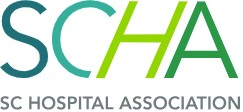 The public spiritedness of our underwriters allows us to bring Statehouse Report to you at no cost. This week’s spotlighted underwriter is the South Carolina Hospital Association, the Palmetto State’s foremost advocate on healthcare issues affecting South Carolinians. The mission of SCHA is to support its members in addressing the healthcare needs of South Carolina through advocacy, education, networking and regulatory assistance.
The public spiritedness of our underwriters allows us to bring Statehouse Report to you at no cost. This week’s spotlighted underwriter is the South Carolina Hospital Association, the Palmetto State’s foremost advocate on healthcare issues affecting South Carolinians. The mission of SCHA is to support its members in addressing the healthcare needs of South Carolina through advocacy, education, networking and regulatory assistance.
Founded in 1921, the South Carolina Hospital Association is the leadership organization and principal advocate for the state’s hospitals and health care systems. Based in Columbia, SCHA works with its members to improve access, quality and cost-effectiveness of health care for all South Carolinians. The state’s hospitals and health care systems employ more than 70,000 persons statewide. SCHA’s credo: We are stronger together than apart.
- To learn more about SCHA and its mission, go to: http://www.scha.org.
Keep your eye on the rule of law during Trump drama

Editor’s Note. This editorial appeared June 16 in the Charleston City Paper.
Charleston police this week circulated a photo of two women wanted for shoplifting from two downtown stores. If they are caught, they are sure to be charged and prosecuted to the fullest extent of the law.
Last week, a federal grand jury in Florida found probable cause to believe former President Donald Trump violated the law by mishandling federal documents by taking boxes and boxes of the nation’s secrets from the White House to his residence. These boxes were stored in unsecured locations, including a bedroom and gaudy bathroom that people without security clearances or our enemies could have accessed and hurt the United States of America.
What happened last week in Florida — and when Trump surrendered and pleaded not guilty — was historic because no president has ever faced federal criminal charges.
In an analysis, CNN called remarks by Trump after his court appearance to be “the most chilling and demagogic ever uttered by a major figure in modern American history:”
Trump said at a fundraiser after his not guilty plea: “Today we witnessed the most evil and heinous abuse of power in the history of our country. Very sad thing to watch, a corrupt sitting president had his top political opponent arrested on fake and fabricated charges of which he and numerous other presidents would be guilty, right in the middle of a presidential election in which he’s losing very badly.”
Ladies and gentlemen, this is a classic, terribly negative, narcissistic political spin. Trump is wrongly blaming someone else for his own alleged acts of corruption and theft of federal documents. If you read the 49-page indictment, it doesn’t take too long to realize that there’s enough substance there — not “fake and fabricated charges” — that it must be judged by a jury.
Trump, like the shoplifters in Charleston, should be prosecuted to the full extent of the law because in America we believe in the rule of law, not the rule of man. We respect the law, not loyalty to a person. That’s the American way — due process by law.
But Trump’s case is simply scary — not just because he’s running again for president or that he seems incapable of remorse after getting caught and bragging about how he had secrets. What’s really scary is how he’s fighting the charges in the court of public opinion. Just as he inflamed insurrectionists to storm the U.S. Capitol on Jan. 6, 2021, in a flagrant attempt to keep power after losing the 2020 election, he’s trying to inflame Americans now to support the cult of Trump, not the democracy that too many have died to defend.
Resist. Trump is a man, not a mountain. If he broke the law — in Florida, Georgia, New York or wherever — he must be held accountable. Just as more than 1,000 people have or are facing charges in the Jan. 6 riot (78 have been found guilty), Trump must face the same music. And if a jury of his peers finds him guilty, he should go to prison, orange jumpsuit and all.
And if that happens, all Americans — Republicans, Democrats and independents — should support the results of the rule of law. There should be no celebrations or civil disturbances. There should be the quiet recognition that in America, the rule of law trumps the rule of any one man.
- Have a comment? Send to: feedback@charlestoncitypaper.com
Water bottles
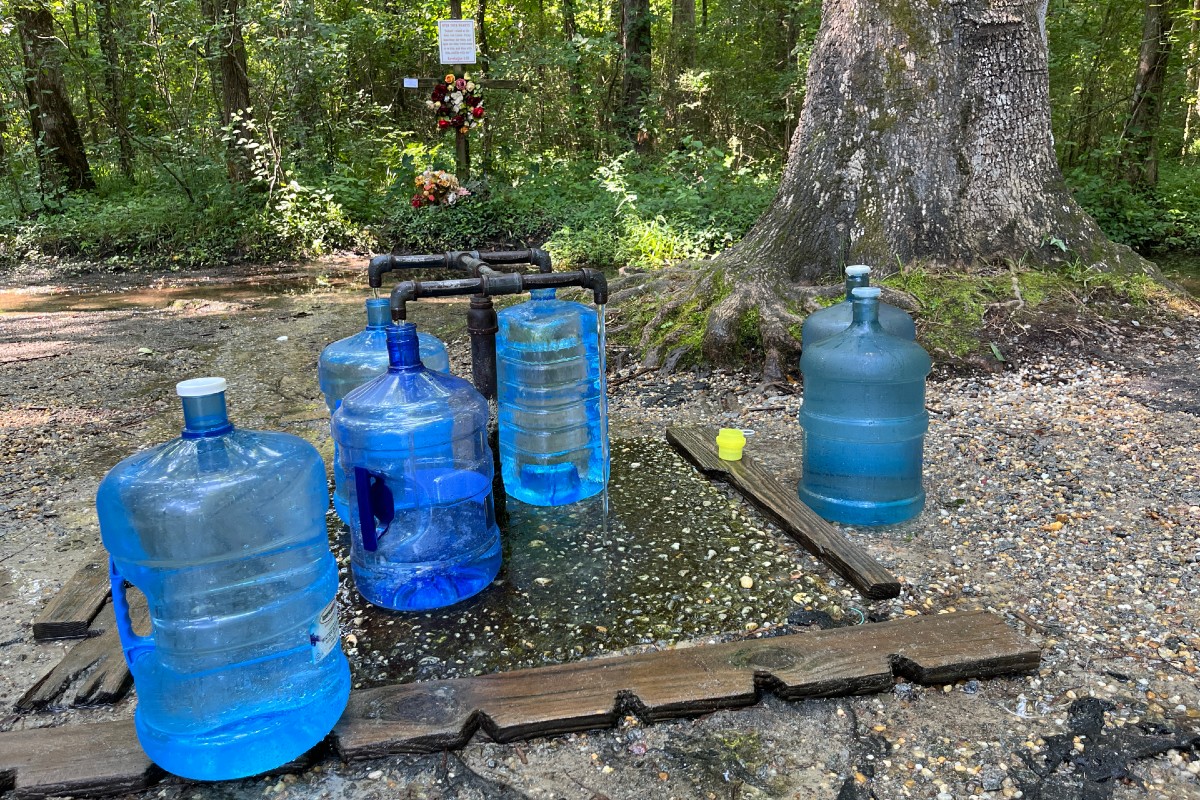
What’s so important about this place where the most common features are water bottles? What is it and where is it? Send us your guess – as well as your name and hometown – to feedback@statehousereport.com.
Last week’s mystery, “Brick building” is a picture from the 1930s of an old cotton gin house at Boone Hall Plantation in Mount Pleasant. Elizabeth Jones of Columbia says the building from the 1850s today serves as a restaurant and gift shop.
Congrats to the following sleuths who identified the image: Jay Altman of Columbia; Allan Peel of San Antonio, Texas; David Lupo of Mount Pleasant; George Graf of Palmyra, Va.; Pat Keadle of Wagener; and Frank Bouknight of Summerville;
>> Send us a mystery picture. If you have a photo that you believe will stump readers, send it along (but make sure to tell us what it is because it may stump us too!) Send to: feedback@statehousereport.com and mark it as a photo submission. Thanks.
Send us your thoughts
We encourage you to send in your thoughts about policy and politics impacting South Carolina. We’ve gotten some letters in the last few weeks – some positive, others nasty. We print non-defamatory comments, but unless you provide your contact information – name and hometown, plus a phone number used only by us for verification – we can’t publish your thoughts.
- Have a comment? Send your letters or comments to: feedback@statehousereport.com. Make sure to provide your contact details (name, hometown and phone number for verification. Letters are limited to 150 words.
- ORDER NOW: Copies are in Lowcountry-area bookstores now, but if you can’t swing by, you can order a copy online today.
- Now available as an e-book!
ABOUT STATEHOUSE REPORT
Statehouse Report, founded in 2001 as a weekly legislative forecast that informs readers about what is going to happen in South Carolina politics and policy, is provided to you at no charge every Friday.
- Editor and publisher: Andy Brack, 843.670.3996
Donate today
We’re proud to offer Statehouse Report for free. For more than a dozen years, we’ve been the go-to place for insightful independent policy and political news and views in the Palmetto State. And we love it as much as you do.
But now, we can use your help. If you’ve been thinking of contributing to Statehouse Report over the years, now would be a great time to contribute as we deal with the crisis. In advance, thank you.
Buy the book
Now you can get a copy of editor and publisher Andy Brack’s We Can Do Better, South Carolina! ($14.99) as a paperback or as a Kindle book ($7.99). . The book of essays offers incisive commentaries by editor and publisher Andy Brack on the American South, the common good, vexing problems for the Palmetto State and interesting South Carolina leaders.
More
- Mailing address: Send inquiries by mail to: P.O. Box 21942, Charleston, SC 29413
- Subscriptions are free: Click to subscribe.
- We hope you’ll keep receiving the great news and information from Statehouse Report, but if you need to unsubscribe, go to the bottom of the weekly email issue and follow the instructions.
- Read our sister publication: Charleston City Paper (every Friday in print; Every day online)
- © 2023, Statehouse Report, a publication of City Paper Publishing, LLC. All rights reserved.















 We Can Do Better, South Carolina!
We Can Do Better, South Carolina!